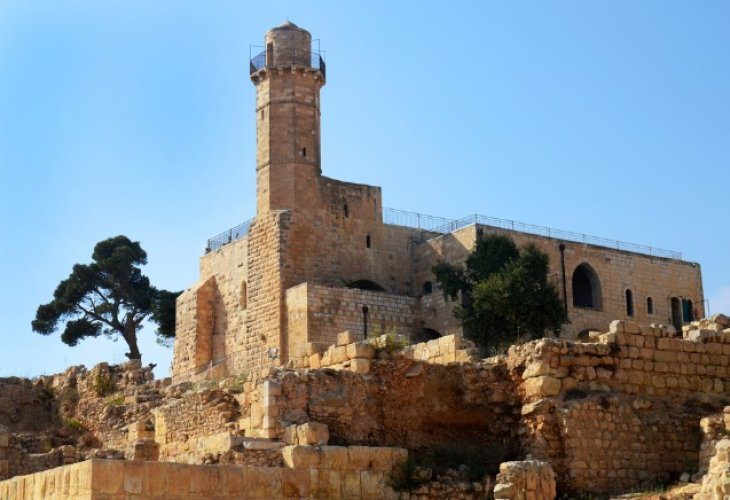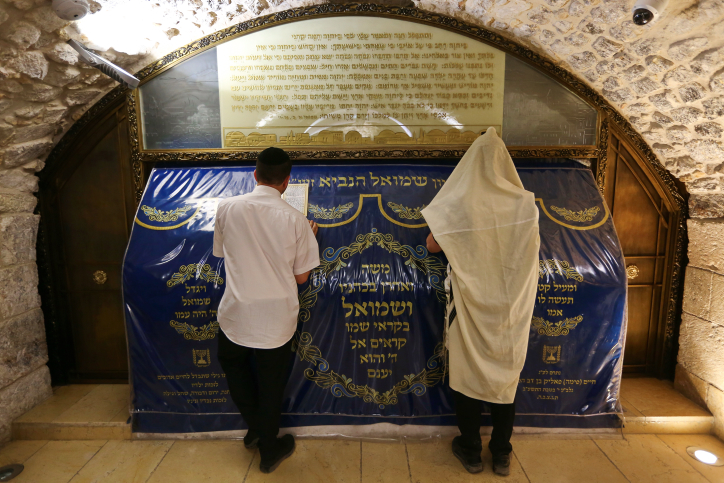Torah Personalities
Samuel the Prophet: His Life, Legacy, and Role in Shaping the Kingdom of Israel
Samuel’s birth, leadership, writings, miracles, and his place among the greatest prophets of Israel
 *Prophet Samuel*
*Prophet Samuel*Shmuel Hanavi (Samuel the Prophet) was the son of Elkana and Chana, from the tribe of Levi, descendants of Kehat. He was a nazir from birth, a prophet, and the leader of the Jewish people at the end of the period of the Judges — between the death of Eli the High Priest and the coronation of Kings Shaul and David. Shmuel had two sons: Yoel and Aviyah.
Shmuel’s Birth and Dedication to God
Even before his birth, Shmuel was dedicated by his mother Chana to the service of God in the Mishkan.
He was brought to the Tabernacle in Shiloh as a small child, where he grew up and was educated by Eli the High Priest, who served as both High Priest and Judge of Israel at that time.
The story of his birth is described in detail in Shmuel I. Elkana had two wives — Chana and Penina. Penina had ten sons, while Chana was barren and unable to conceive naturally. During one visit to the Tabernacle in Shiloh, Chana vowed that if God granted her a child, she would dedicate him to Divine service.
When Shmuel was born, Chana fulfilled her vow and brought him at the age of two to serve God in Shiloh under Eli’s guidance.
Chana’s Prayer – Meaning and Traditions
Chana’s prayer (found in Shmuel I, chapter 2) is the Haftarah read on the first day of Rosh Hashanah. It is the prayer she recited in her sorrow as a barren woman, and in which she was answered with the birth of Shmuel.
From her prayer, the Sages derived many foundational laws of prayer. The content of the prayer is Chana’s hymn of thanksgiving (Samuel I, 2:1–10), followed by additional collected verses.
Traditions Connected to Chana’s Prayer
It is commonly recited after lighting Shabbat candles for fertility and easy childbirth.
According to Sephardic custom, it is recited every morning before Shacharit, serving as protection from spiritual obstacles to prayer, based on the verse:
“The Lord will shatter His adversaries.”
The Heavenly Voice Announcing Shmuel's Birth
The Midrash teaches that forty years before Shmuel was born, a heavenly voice proclaimed throughout Israel: “A righteous man named Shmuel is destined to arise.”
This message became widely known, and therefore many women named their newborn sons ‘Shmuel’, hoping theirs would be the promised child. The heavenly voice continued announcing, and the women knew that the true Shmuel had not yet been born.
When Chana’s son Shmuel was finally born, the heavenly voice ceased, and all Israel knew that the true prophet had arrived.
The Sages say: “All the sons named ‘Shmuel' because of that heavenly voice merited prophecy — these became the group of prophets who prophesied.”
Our great ethical teachers explain: This Midrash reveals the power of deep desire. Because the women yearned to give birth to the righteous Shmuel, their sons were elevated spiritually and became prophets.
 (Photo: Flash 90)
(Photo: Flash 90)Leadership and Achievements
After Eli’s death, Shmuel led the Jewish people. He judged the nation faithfully and traveled throughout Israel — from Dan to Be'er Sheva, teaching and adjudicating cases. He did not wait for the people to come to him; he went to them, making Torah and justice accessible to all.
Shmuel established a permanent court in Ramah, mentioned in various sources. The Talmud (Makkot) notes that this court was one of three places where Ruach HaKodesh (Divine inspiration) appeared.
According to the Baraita in Bava Batra, Shmuel wrote:
The Book of Shmuel (until his death; the rest was written by Gad the Seer and Nathan the Prophet)
The Book of Judges
The Book of Ruth
Shmuel is mentioned in many places as a prophet of exceptional stature. The prophet Yirmiyahu records God saying: “Even if Moshe and Shmuel stood before Me, My soul would not turn toward this people.”
In Tehillim, Shmuel is equated with Moshe and Aaron: “Moshe and Aaron among His priests, and Shmuel among those who call His name.”
The Sages explain that this teaches: “A leader in his generation is like Moshe in his generation... and Shmuel in his generation.”
Shmuel as One of the “Eight Princes of Man”
In the Talmud (Sukkah), Shmuel is listed as one of the “Eight Princes of Man.” The others include: Yishai, Saul, Amos, Tzefaniah, Tzidkiyahu, Mashiach, and Elijah.
His Sons and Israel’s Demand for a King
In his old age, Shmuel appointed his sons Yoel and Aviyah as judges, but they did not follow his ways and were swayed by personal gain.
Near Shmuel’s final years, the elders of Israel approached him and demanded: “Give us a king to judge us, like all the nations.”
Shmuel was distressed by this, but God told him: “Listen to the people... they have not rejected you, but Me, from reigning over them.”
Shmuel then anointed Shaul, and later David, as kings of Israel.
Death and Burial
Shmuel the Prophet died at the age of 52, shortly before the end of Shaul’s reign. He was buried in Ramah, his hometown.
Shaul and the Witch of Endor
After Shmuel’s death, the Philistines pressed heavily upon Israel.
Before Shaul’s final battle on Mount Gilboa, he sought out the Witch of Endor to summon Shmuel’s spirit.
Shmuel told Shaul: “The Lord has turned away from you... and tomorrow you and your sons will be with me. The Lord will deliver Israel into the hands of the Philistines.”
Indeed, in that battle, Shaul and his sons — including Yonatan, were killed, and Israel suffered defeat.
Shmuel’s Yahrzeit
There is a debate whether Samuel passed away on the 28th of Iyar or the 29th of Iyar. On both days, tens of thousands visit his burial site in Ramah, near the Ramot neighborhood of Jerusalem.

